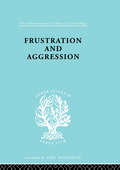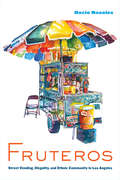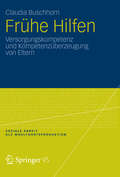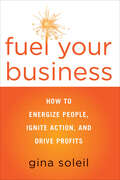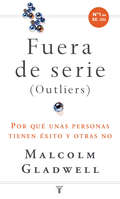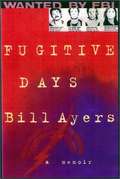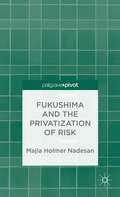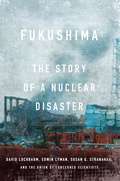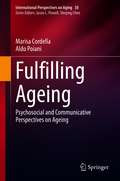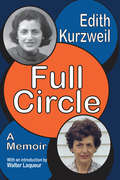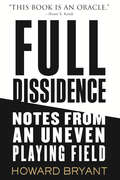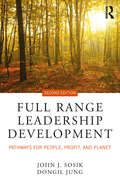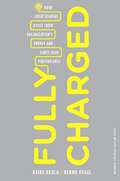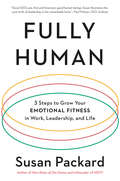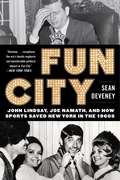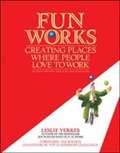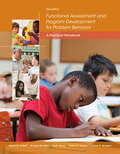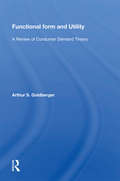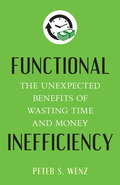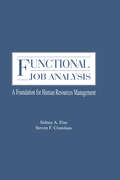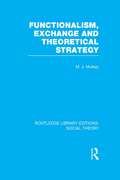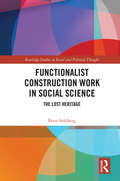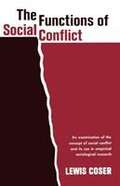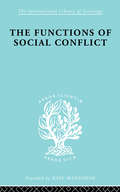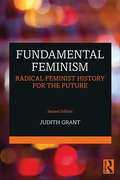- Table View
- List View
Frustration & Aggressn Ils 245 (International Library of Sociology)
by John Dollard Neal E. Miller Leonard W. Doob O. H. Mowrer Robert R. SearsFirst Published in 1998. Routledge is an imprint of Taylor & Francis, an informa company.
Fruteros: Street Vending, Illegality, and Ethnic Community in Los Angeles
by Rocío RosalesThis book examines the social worlds of young Latino street vendors as they navigate the complexities of local and federal laws prohibiting both their presence and their work on street corners. Known as fruteros, they sell fruit salads out of pushcarts throughout Los Angeles and are part of the urban landscape. Drawing on six years of fieldwork, Rocío Rosales offers a compelling portrait of their day-to-day struggles. In the process, she examines how their paisano (hometown compatriot) social networks both help and exploit them. Much of the work on newly arrived Latino immigrants focuses on the ways in which their social networks allow them to survive. Rosales argues that this understanding of ethnic community simplifies the complicated ways in which social networks and social capital work. Fruteros sheds light on those complexities and offers the concept of the "ethnic cage" to explain both the promise and pain of community.
Frühe Hilfen
by Claudia BuschhornUntersuchungen zur Wirksamkeit der vielfältigen Angebote Früher Hilfen, verstanden als Bildungs-, Beratungs- und Unterstützungsangebote zur Förderung der elterlichen Beziehungs-, Erziehungs- und Versorgungskompetenz von (werdenden) Eltern, gibt es derzeit kaum. Claudia Buschhorn stellt eine angebotsübergreifende, wirkungsorientierte Analyse von Frühen Hilfen vor. Anhand einer telefonischen Befragung von AdressatInnen, die Frühe Hilfen besuchten, wurden Daten erhoben, die Aussagen darüber erlauben, inwiefern sich die Versorgungskompetenz sowie die elterliche Kompetenzüberzeugung verändern. Die Auswertungen zeigen positive Effekte der Angebote bei einer hohen subjektiven Zufriedenheit der AdressatInnen und liefern damit wichtige Impulse für die Diskussion um die Wirksamkeit Früher Hilfen.
Fuel Your Business: How to Energize People, Ignite Action, and Drive Profits
by Gina Soleil“The next generation resource for leaders . . . demonstrates the need for the intersection of human energy, overall well-being, and value-based leadership.” —Jean Nitchals, partner, Niche Solutions, LLCGina Soleil takes you through a thought-provoking journey on how to transform your business into a haven of productivity. Using the science of energy, Gina gives you a step-by-step roadmap for building a business that’s fueled to win in today’s market. Soleil reveals the intersection between human energy and business, exposing the truth about how to attract what you want—energy, action, and profits.Human energy is the door of opportunity for business. As the demands of our connected world increase, people no longer have the energy they once had to be fully engaged, productive, and innovative in the workplace—leaving business leaders in search of a solution.In Fuel Your Business, you will discover life- and business-changing keys to success, such as:How the science of energy is the secret to profitHow to free your business from toxic energy that wants to hold you backHow taking the assessment and knowing your score will put your business on the performance fast trackHow to attract the energy you want—now!“Brilliant in the way few books are . . . These ideas will revolutionize how we look at business, economics, public policy and so much more.” —Jennifer Hovelsrud, corporate communications, UnitedHealth Group“When business leaders escape their preconceptions and embrace her energy-centered approach we’ll all enjoy a transformation in American business culture.” —James Matheson, president and partner, Network Medics, Inc.
Fuera de serie: Por qué unas personas tienen éxito y otras no
by Malcolm GladwellDel máximo gurú de los negocios, autor de La clave del éxito. The tipping point e Inteligencia intuitiva. ¿Qué diferencia a quienes hacen algo especial en la vida de quienes no lo hacen? Fuera de serie explora las curiosas historias de los grandes jugadores de fútbol; bucea en la peculiar infancia de Bill Gates; busca qué convirtió a los Beatles en el mejor grupo de rock; y se pregunta qué distingue a los pilotos que estrellan aviones de los que no. A través de su viaje por el mundo de los «fuera de serie», los mejores, los más brillantes y famosos, nos convence de que nuestro modo de pensar en el éxito es erróneo. Prestamos demasiada atención al aspecto de estas personas, y muy poca al lugar de donde vienen, es decir, a su cultura, su familia, su generación y a las singularidades de su educación. Brillante y entretenido, Fuera de serie es toda una referencia que al mismo tiempo iluminará y hará disfrutar. Reseñas:«Leer Fuera de serie es un verdadero placer, y Gladwell nos deja dándoles vueltas a sus ingeniosas teorías durante días.»David Leonhardt, The New York Times «Fuera de serie es un libro convincente y entusiasta. Su secreto es que no trata sólo de los fuera de serie, sino de la gente en general.»Robert Colvile, Telegraph «Las teorías de Malcolm Gladwell, que ya gozan de una impresionante popularidad, han convertido su apellido en un adjetivo: ¡Gladwelliano! En Fuera de serie, matiza nuestro culto al éxito.»Jason Zengerle, New York Magazine «Una vez más, Gladwell demuestra dominar un género del que, de hecho, es pionero: el de los libros que esclarecen las causas ocultas tras los fenómenos del día a día.»Publishers Weekly «Malcolm Gladwell, escritor de éxito masivo, se ha convertido en uno de los grandes especialistas de nuestro tiempo en iluminar las zonas de sombra con su mezcla de periodismo, estudios científicos, historia y filosofía. Amante de llevar la contraria [...] Su objetivo es colocar junto a la certeza un signo de interrogación. [...] Gladwell define su trabajo como "no ficción pop". [...] Es un cheerleader de las ciencias sociales. [...] A la vista de los millones de lectores que han devorado sus libros, cabría decir que hay algo tranquilizador en ver ideas confirmadas por los estudios citados. También es curioso y seductor.»El País Semanal «Un mago en los libros de autoayuda. [...] Con más de 10 millones de ejemplares vendidos, Malcolm Gladwell es uno de los principales escritores "motivacionales", gurú del éxito y analista de "estrategias para triunfar". La clave del éxito, Inteligencia intuitiva, Lo que vio el perro y Fuera de serie son libros que ejecutivos y líderes de todo tipo devoran en los aeropuertos.»La Gaceta de los negocios
Fugitive Days: A Memoir
by Bill AyersAyers helped found the Weather Underground in the late 1960s in response to the horror of the Vietnam War. He recounts a decade of living as a fugitive, stealing explosives, hiding from the law, and losing his beloved Diana Oughton in an explosion. The 2001 edition was published by Beacon Press. Annotation ©2004 Book News, Inc. , Portland, OR (booknews. com)
Fukushima and the Privatization of Risk
by Majia Holmer NadesanMajia Holmer Nadesan analyzes the Fukushima nuclear disaster and its radiological aftermath for the citizens of Japan and elsewhere in the context of historical and contemporary understandings of radiation-caused health and reproductive effects.
Fukushima: The Story of a Nuclear Disaster
by David Lochbaum Edwin Lyman Union of Concerned Scientists Staff Susan Q. StranahanOn March 11, 2011, an earthquake large enough to knock the earth from its axis sent a massive tsunami speeding toward the Japanese coast and the aging and vulnerable Fukushima Daiichi nuclear power reactors. Over the following weeks, the world watched in horror as a natural disaster became a man-made catastrophe: fail-safes failed, cooling systems shut down, nuclear rods melted. In the first definitive account of the Fukushima disaster, two leading experts from the Union of Concerned Scientists, David Lochbaum and Edwin Lyman, team up with journalist Susan Q. Stranahan, the lead reporter of the Philadelphia Inquirer's Pulitzer Prize-winning coverage of the Three Mile Island accident, to tell this harrowing story. Fukushima combines a fast-paced, riveting account of the tsunami and the nuclear emergency it created with an explanation of the science and technology behind the meltdown as it unfolded in real time. Bolstered by photographs, explanatory diagrams, and a comprehensive glossary, the narrative also extends to other severe nuclear accidents to address both the terrifying question of whether it could happen elsewhere and how such a crisis can be averted in the future.
Fulfilling Ageing: Psychosocial and Communicative Perspectives on Ageing (International Perspectives on Aging #30)
by Aldo Poiani Marisa CordellaThis book explores the reality of ageing and old age from the perspectives of the individual and society. It emphasizes cross-cultural aspects of ageing and communication issues both within and across generations. The authors approach the understanding of ageing from a multi-disciplinary perspective, integrating biology, psychology, linguistics, sociology, and history. The book is organized as follows: historical and broader cross-cultural issues of ageing, followed by biomedical, psychological, social, and communicative aspects of ageing. The book concludes with an in-depth analysis of the existential dimension of ageing followed by an evolutionary perspective.
Full Circle: A Memoir
by Walter Laqueur Edith KurzweilThis is a personal history of the twentieth century as seen through the eyes of Edith Kurzweil, author, teacher, editor of Partisan Review, and a recent recipient of the National Medal of Humanities. The book opens with Kurzweil early adolescence in Vienna during the Nazi takeover. It ends with the author finding herself in the new century. In between, she kept moving on and interrogating the world around her. The reader follows Kurzweil on her perilous journey, at the age of fourteen, to Belgium, through France, Spain, and Portugal, alone with her younger brother. Her fantasies of reunion with her parents in New York kept her going but came to naught: she had not expected to fall from a wealthy childhood into the life of the working-class poor, as a millinery apprentice or a diamond cutter. Instead of entering college life, she eventually became a conventional American housewife. Unhappy and anxious, she anticipated the social changes in America, and returned to Europe with her second husband and her two children. She arrived at the beginning of the Italian miracle--its post-war revitalization. In Milan she met many Americans as an active member of its community and of the British-American club. After personal tragedy she returned to New York, and only then pursued her early intellectual ambitions. The author eventually became a professor of sociology and quickly climbed up the academic ladder. Just as she had been as a little girl, she still "wanted to know everything," beginning with her study of Italian entrepreneurs and going on to European history and French thought, to psychoanalysis and anti-Semitism. Her early writings prompted William Phillips, co-founder and editor of Partisan Review, to invite her into the elite circle of New York intellectuals. She worked alongside him, first as a reader, then as executive editor, and took over the editorship of the legendary journal during its final period. Kurzweil's journey was one of courage, and of emotional and intellectual growth. Full Circle will be of interest to intellectual and cultural historians, literary and Holocaust scholars, and American studies specialists.
Full Dissidence: Notes from an Uneven Playing Field
by Howard BryantA bold and impassioned meditation on injustice in our country that punctures the illusion of a postracial America and reveals it as a place where authoritarianism looms large.Whether the issues are protest, labor, patriotism, or class division, it is clear that professional sports are no longer simply fun and games. Rather, the industry is a hotbed of fractures and inequities that reflect and even drive some of the most divisive issues in our country. The nine provocative and deeply personal essays in Full Dissidence confront the dangerous narratives that are shaping the current dialogue in sports and mainstream culture. The book is a reflection on a culture where African Americans continue to navigate the sharp edges of whiteness--as citizens who are always at risk of being told, often directly from the White House, to go back to where they came from. The topics Howard Bryant takes on include the player-owner relationship, the militarization of sports, the myth of integration, the erasure of black identity as a condition of success, and the kleptocracy that has forced America to ask itself if its beliefs of freedom and democracy are more than just words.In a time when authoritarianism is creeping into our lives and is being embraced in our politics, Full Dissidence will make us question the strength of the bonds we think we have with our fellow citizens, and it shows us why we must break from the malignant behaviors that have become normalized in everyday life.
Full Range Leadership Development: Pathways for People, Profit, and Planet
by John J. Sosik Dongil JungIt has been more than 30 years since Bernard M. Bass presented an integrated overview of Full Range Leadership Development (FRLD), which has since become the standard for providing leadership training around the world in business, military, religious, and educational contexts. This book teaches how to use FRLD to grow transformational leaders in organizations. Organizations that support and develop transformational leadership at all levels are more productive and profitable, attract and retain top notch talent, promote creativity and innovation, garner trust and commitment from employees, leverage sustainability and workplace safety efforts, and are strategically positioned to respond well to uncertainties and changes in the market. Retaining the conversational style of the first edition, this second edition contains several new features, such as: updated leader profiles and leadership examples, including more international cases; expanded discussion of gender diversity and leadership in teams; and new Summary Questions and Reflective Exercises. The book’s practical action steps make it of use to both practitioners and students and well-suited as a core leadership textbook or supplement in leadership development courses.
Fully Charged
by Heike Bruch Bernd VogelAs you're well aware, your individual energy ebbs and flows--leading to high and low productivity cycles. Fail to manage your energy correctly, and you risk falling into traps including inertia, complacency, and frenzied, unfocused activity that only erodes the quality of your life.The same holds true for your entire organization. In Fully Charged, Heike Bruch and Bernd Vogel provide tools and strategies to help you manage your company's collective energy.First, diagnose your company's "energy state" using the Organizational Energy Matrix. By assessing the intensity (high or low) and the quality (positive or negative) of the energy in your enterprise, you discover which of four energy states your company is experiencing. Second, move your company out of dangerous states characterized by complacency, cynicism, aggression, withdrawal, and other perils. By applying practices mastered by companies as diverse as Airbus, Novartis, SAP, and Tata Steel, you can shift your firm into a state of high, positive energy--in which everyone is emotionally engaged, mentally alert, and working swiftly and productively toward critical goals.Practical and backed by extensive research, Fully Charged reveals how to continually refresh your company's energy--so it's always ready to tackle the next period of high demand.
Fully Human: 3 Steps to Grow Your Emotional Fitness in Work, Leadership, and Life
by Susan PackardHGTV cofounder Susan Packard launches the next chapter in emotional intelligence (EQ), and shows you how to increase your personal satisfaction and productivity—in work and life—via her three-step path toward EQ Fitness. Emotions can sink us, or they can power us like fuel to succeed. Many of us show up for work, and life, feeling lonely even in a room full of people, or bringing unproductive emotions into work, like anger or fear. You don’t have to feel this way. Susan Packard offers an accessible new guidebook to grow your emotional fitness, and it’s arrived just in time, as technology is quickly becoming our main interface for communication. No matter where you are in your career, success is an inside job. Packard lays out how to develop interdependent work relationships, and for leaders, how to build healthy company cultures. Packard introduces us to successful people, and companies, that are rich with ‘connector’ emotions like hope, empathy and trust-building. She tackles unconventional topics, like how workaholism keeps us emotionally adolescent, and how forgiveness belongs in the workplace too. Packard shares her EQ Fit-catalyzed success at HGTV and the stories of the executives she coaches in mindfulness and other emerging techniques, and she teaches an ‘inside out’ practice of self-discovery, which helps you uncover unproductive emotions, and dispel them. The best leaders balance power and grace, and everyone can effectively use resilience--an ability to endure tough situations and make tough decisions, and vulnerability, a willingness to open up, change, and admit when we need help. She offers new tools to bring our strongest emotional selves to work each day.
Fun City: John Lindsay, Joe Namath, and How Sports Saved New York in the 1960s
by Sean DeveneyOn January 1, 1966, New York came to a standstill as the city’s transit workers went on strike. This was the first day on the job for Mayor John Lindsay--a handsome, young former congressman with presidential aspirations--and he would approach the issue with an unconventional outlook that would be his hallmark. He ignored the cold and walked four miles, famously declaring, "I still think it is a fun city. ” As profound social, racial, and cultural change sank the city into repeated crises, critics lampooned Lindsay’s "fun city. ” Yet for all the hard times the city endured during and after his tenure as mayor, there was indeed fun to be had. Against this backdrop, too, the sporting scene saw tremendous upheaval. On one hand, the venerable Yankees--who had won 15 pennants in an 18-year span before 1965--and the NFL’s powerhouse Giants suddenly went into a level of decline neither had known for generations, as stars like Mickey Mantle and Whitey Ford on the diamond and Y. A. Tittle on the gridiron aged quickly. But on the other, the fall of the city’s sports behemoths was accompanied by the rise of anti-establishment outsiders--there were Joe Namath and the Jets, as well as the shocking triumph of the Amazin’ Mets, who won the 1969 World Series after spending the franchise’s first eight seasons in the cellar. Meanwhile, the city’s two overlooked franchises, the Knicks and Rangers, also had breakthroughs, bringing new life to Madison Square Garden. The overlap of these two worlds in the 1960s--Lindsay’s politics and the reemerging sports landscape--serves as the backbone of Fun City. In the vein of Ladies and Gentlemen: The Bronx is Burning, the book tells the story of a remarkable and thrilling time in New York sports against the backdrop of a remarkable and often difficult time for the city, culturally and socially. The late sixties was an era in which New York toughened up in a lot of ways; it also was an era in which a changing of the guard among New York pro teams led the way in making it a truly fun city.
Fun Works: Creating Places Where People Love to Work (2nd edition)
by Leslie YerkesDemonstrates how 11 successful companies, including Southwest Airlines, Pike Place Fish, Isle of Capri Casinos, and Prudential, have integrated fun into the normal course of business and shows how this has translated into improved results across the board. The book includes b&w photos and assessment worksheets, plus lists of books and leaders in the field. Yerkes is president of an organizational development firm. Annotation c. Book News, Inc., Portland, OR (booknews.com)
Functional Assessment and Program Development for Problem Behavior: A Practical Handbook
by Jeffrey R. Sprague Robert H. Horner Keith Storey Robert E. O'Neill Richard W. AlbinFUNCTIONAL ASSESSMENT AND PROGRAM DEVELOPMENT FOR PROBLEM BEHAVIOR: A PRACTICAL HANDBOOK, Third Edition, guides readers through the procedures of conducting a functional assessment, including a variety of strategies for assessing problem behavior situations. The book also presents a systematic approach for designing behavioral support programs based on those assessments. Professionals and students alike appreciate the step-by-step guidance as well as the wealth of examples and forms that equip users to begin conducting functional assessments and developing their own intervention programs.
Functional Form And Utility: A Review Of Consumer Demand Theory
by Arthur GoldbergerThis book presents a review of classical consumer demand theory, emphasizing the form of utility and demand functions. The theory is developed in general terms with reference to the linear expenditure system and with reference to alternative specifications of complete sets of demand functions.
Functional Inefficiency
by Peter S. WenzHow can we reduce unemployment? As this insightful and counterintuitive book shows, the surprising answer is inefficiency. Some of the most labor-intensive sectors of the economy, the author notes, are also the most inefficient. But this inefficiency is functional--rather than impairing the economy, it bolsters employment and fosters economic growth.Technological progress increases efficiency and reduces the need for workers in manufacturing, mining, agriculture, and many services. So how do we keep people working? By maintaining inefficiencies in other areas, such as in our systems of transportation and healthcare. The author documents the waste of time and money in hospital systems, the insurance and pharmaceutical industries, automotive travel, and road construction and maintenance. These inefficiencies are tolerated because they provide a lot of jobs and promote economic growth, making them functional inefficiencies.Some of these inefficient systems come with added environmental and health costs, meaning we sacrifice more than simple efficiency for the sake of jobs. Our inefficiencies may be functional, argues Peter Wenz, but they are too often harmful for us as well.The good news is that most of these inefficiencies can be reduced without increasing unemployment or impairing economic growth. Wenz explores different methods of combating unemployment, evaluating each method carefully to determine its basic efficiencies and inefficiencies, as well as its impact on human wellbeing and on the environment. He also assesses whether it is culturally and politically acceptable and actually serves to reduce unemployment. Some inefficiency will remain, he concludes, but its negative impacts can be lessened through increased investment in physical and human infrastructure.Functional Inefficiency offers a wealth of details and a unique analysis of our economic system, plus hope for our future prospects through reduced inefficiency.From the Hardcover edition.
Functional Job Analysis: A Foundation for Human Resources Management (Applied Psychology Series)
by Sidney A. Fine Steven F. CronshawThis book was written to address the need for timely, thorough, practical, and defensible job analysis for HR managers. Under continuing development over the past 50 years, Functional Job Analysis (FJA) is acknowledged by major texts in HR and industrial/organizational psychology as one of the premier methods of job analysis used by leading-edge organizations in the private and public sectors. It is unique among job analysis methods in having its own in-depth theoretical grounding within a systems framework. In addition to providing a methodology for analyzing jobs, it offers a rich model and vocabulary for communicating about the competencies (skills) contributing to work success and about the design of the work organization through which those competencies are expressed. FJA is the right theory and methodology for future work in an increasingly competitive global economy. This book is the authoritative source describing how FJA can encourage and support an ongoing dialogue between workers and management as they jointly pursue total quality, worker growth, and organization performance. It is a flexible tool, fully recognizing the rapid changes impacting today's organizations. It is a comprehensive tool, leading to an in-depth understanding of work, its results, and its improvement in a unique organization context. It is a humane tool, viewing workers in light of their full potential and capacity for positive growth. With FJA, workers and managers can work more constructively together in a wholesome and productive work relationship.
Functionalism, Exchange and Theoretical Strategy (Routledge Library Editions: Social Theory)
by Michael MulkayM.J. Mulkay traces the development of certain recent versions of functionalism and exchange theory in sociology, with special attention to 'theoretical strategy'. He uses this term to refer to the policies which theorists adopt to ensure that their work contributes to their long range theoretical objectives. Such strategies are important, he believes, because they place limits on the theories with which they are associated. He shows how each of the theorists he studies devised a new strategy to replace the unsuccessful policies of a prior theory in a process of 'strategical dialectic'. This often has unforeseen consequences for the direction of theoretical growth, and the author interprets changes in theoretical perspective largely as products of these strategical innovations.
Functionalist Construction Work in Social Science: The Lost Heritage (Routledge Studies in Social and Political Thought)
by Peter SohlbergAn understanding of the complex consequences of social processes and social design activities necessitates a holistic systemic perspective, systematised in the classic structural-functional research tradition, which is presented in Functionalist Construction Work in Social Science. In contrast to fragmented discussions of functionalism and functional analyses, the approach here covers a span ranging from ontological, epistemological and primarily methodological aspects of functionalism. The functionalist tradition in social science is placed in a historic context, and problematised from a philosophy of science perspective. Unique here is a detailed account of four classic functionalist research programmes with a discussion of functionalism, not primarily as a worldview, but as systematic knowledge-generating research strategies. In addition to descriptive and causal questions, the importance of a further research question is demonstrated, i.e., the identification of crucial problems of social organisation. Functionalist research strategies and functional analysis are of interest for social scientists and students in sociology, political science, and social anthropology. Moreover, the book is relevant for researchers and students of philosophy of science and social science methodology
Functns Soc Conflict Ils 110 (International Library of Sociology)
by Lewis A. CoserPublished in 1998, Functns Soc Conflict Ils 110 is a valuable contribution to the field of Sociology and Social Policy.
Fundamental Feminism: Radical Feminist History for the Future
by Judith GrantIn this updated classic, Judith Grant provides a new introduction and postscript that frames her original work as part of a larger argument about the importance of structuralism in radical feminist ideas of patriarchy. Forewords by esteemed feminist theorists reintroduce the new edition to the latest generation of feminist students and scholars. In Fundamental Feminism, Judith Grant explores the evolution of feminist theory in the context of today's feminist thought. In the original work, Grant analzyed three core concepts in feminist theory – "woman," "experience," and "personal politics" – from their origins in pamphlets and writings from the early women's liberation movement to their later constructions in feminist thought. In this second edition, she argues for the pivotal role of early radical feminism and the longstanding influence of these core assumptions on current theories including intersectional theory, queer theory structuralism and poststructuralism, and ongoing discussions about the sexuality debates of the 1980s. Fundamental Feminism is provocative reading for anyone interested in the history and future of feminist theory and the power of feminist politics.
